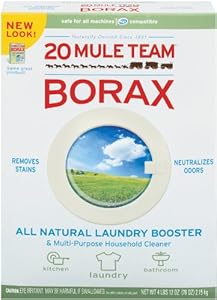Make a reservation for you hotel stay, not for the day your baby is born. Estimated Day of Arrival seems to me a better, less assuming term than Due Date. When throughout your pregnancy you’ve recited time and time again a specific date in response to the infamous question “what’s your due date” it’s hard not to get fixated and wonder “where is my baby!?” You’re excited for the newest addition for your family, the nursery is ready, diapers picked out and clothes hang in the closet. With sleep and comfort are getting harder to come by it’s hard not to say baby is late when you go past your due date; but it’s not quite the truth. Your “due date” is calculated from the first day of your last menstrual cycle, so when you're 40 weeks pregnant you are actually 38 weeks gestation and so forth. Furthermore, not every woman has the exact same cycle and every baby, every birth is different. Naegele's Rule states that 50% of babies are born before and 50% are born after their “due date.” The date you have recited over and over is simply the middle of a bell curve. If you're having a healthy pregnancy and baby is healthy, let baby pick his or her birthDay!
Fashionably late babies don’t actually become so until past 42 weeks! So kick back, relax and.....
1. Get your nails done, girl!
You and baby will be seeing them soon ;-)
2. Enjoy a massage
Once your milk comes in it won't be quite as comfy
3. Go on a date with your partner
Cherish this time together as a twosome
4. Cherish this time with your other child(ren) before the family grows again
5. Take a nap
6. Stay up late and sleep in
7. Enjoy a walk (sans stroller)
8. See a movie
9. Plan and execute a "due date" party
10. Acupuncture anyone?
11. Indulge in a bubble bath
Don't forget the candles
12. Turn on the tube for some uninterrupted screen time
13. Play a board game
14. Make a rice sock
Great for labor
15. Visit the chiropractor
16. Have you washed all the baby clothes?
17. Cook up and freeze some yummy dishes
18. Try something spicy :-P
19. Sudoku and crosswords and word searches
It's no fun to be stuck in bed but if you are, challenge your mind
20. Indulge in one small glass of red wine
21. Double check your bag if you're having a birth outside of your home
Did you remember the chapstick? Hair ties?
22. Pick out the birth announcement
Do you need stamps?
23. Read some more blogs
24. Get lost in a good book
25. Write a letter to your baby
26. Update your playlist
Play some tunes for baby too :-)
27. Learn a lullaby
28. Buy a pack of diapers
You can never have too many.
29. Walk around the mall or grocery store.
30. Call up a friend
31. Find a local La Leche League meeting
32. Have sex!
33. Install the carseat with the local fire department.
34. Do you have a postpartum doula yet? Friends and family ready to lend a hand?
35. Read positive birth stories.
36. Meditate
37. Learn to knit
38. Decorate the nursery with a belly cast!
39. Go Dancing
Even if it's just a wiggle
40. Get your hair done
The shampoo is the best part :-)
41. Practice your relaxation techniques with timed 'contractions'
42. Get your nails done
A manicure this time
43. Make a birthDay cake!
45. Get the facts
Do your research and know why it's best (in a healthy pregnancy) to let baby pick his/her birth day!
46. Bake some cookies
Do your research and know why it's best (in a healthy pregnancy) to let baby pick his/her birth day!
46. Bake some cookies
47. Take the time to enjoy this part of the Jouney of Life!
48. Add to this list!


